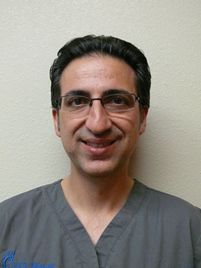Charcot-Marie-Tooth disease is the most common inherited neurological disorder and a physician-scientist at Cedars-Sinai has just been awarded a $3 million grant to study it. The grant comes from the California Institute for Regenerative Medicine and the nerve-damaging disease will be studied with new stem cell technology.
The study will be lead by Robert H. Baloh, M.D., Ph.D., the director of the Neuromuscular Division of Cedars-Sinai's Department of Neurology. Dr. Baloh and his research team will use induced pluripotent stem cells to reproduce the disease in a Petri dish. This will allow them to learn about and correct its defective genetic makeup, possibly leading to a cure for the disease.
"Our studies funded by the CIRM grant will be 'preclinical'—laboratory research—to determine if we can generate personalized stem cell lines for individual patients," said Baloh. "This would mean removing skin cells from a patient with this disease, converting them into induced pluripotent stem cells, genetically correcting them, and then transplanting them back into the patient to—we hope—restore normal nerve function."
There are more than 40 known gene defects that cause Charcot-Marie-Tooth disease, but this study will focus on errors in the PMP22 gene. It is one of the first studies aimed at figuring out whether stem cell therapies can be developed for individuals with the disease. The scientists are focusing on the PMP22 gene defect because it responsible for the most common subtype of the disease, which affects about 11 people per 100,000 in the United States.
Charcot-Marie-Tooth disease currently causes most patients to have weakness and numbness in the hands and lower legs. A lot of people will develop a foot deformity, which makes it so they can't lift their legs properly and have an unsteady gait which makes them trip often.


